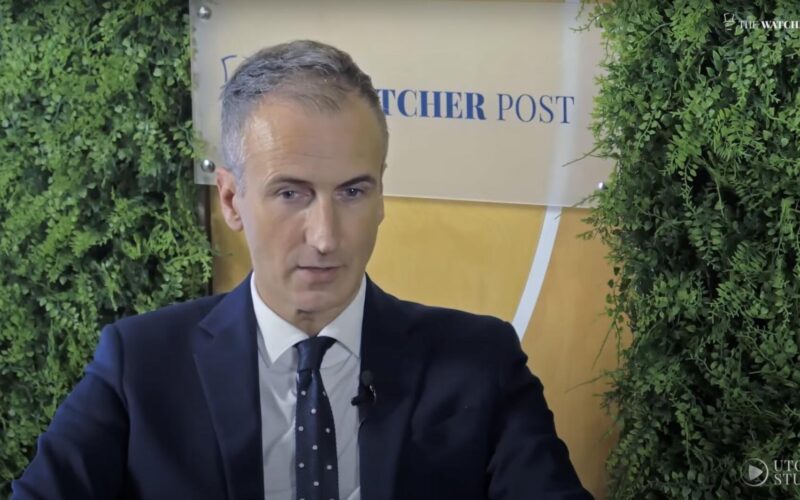Place Lux
Commission welcomes Italian draft updated National Energy and Climate Plan, but still work to do
Di Sara Bellucci
Member states are currently reviewing their National Energy and Climate Plans (NECPs), the framework for Member States to outline their climate and energy goals, policies and measures from 2021 to 2030 and translate national commitments towards the objective of the Paris Agreement into concrete policies and actions.
Since when they first submitted their NECPs in 2019, much has changed in the EU in terms of climate objectives. During the last legislative term, the legislators have been working on the so-called “Fit for 55” package, a series of initiatives to turn the EU Green Deal into reality and reach the targets set in the EU Climate Law. The energy crisis and Russia’s invasion of Ukraine have further urged to speed up the EU energy transition. Thanks to a series of acts successfully adopted, the EU has stepped up its ambition and this has now to be translated into the NECPs revision.
Under the Energy Union’s governance regulation, each country must submit a progress report every 2 years, which will be then reviewed by the Commission to assess the EU’s progress as a whole towards achieving these targets, as part of the state of the Energy Union report. To help the countries to draft the Plans, the Commission provides an assessment of the draft NECPs.
Up to now, 21 countries have duly submitted their drafts by June 2023. On 18 December the Commission published its assessment of the draft updated National Energy and Climate Plans (NECPs) submitted until now, accompanied by country-specific recommendations. Member states have now time to change or clarify some points of their plans, before the deadline to submit the final version in June 2024.
Overall, the Commission assessment shows that the EU needs to do extra efforts to reach the 2030 climate targets and to implement existing legislation. Indeed, current measures would lead to a reduction of 51% of greenhouse gas emissions instead of at the least 55% by 2030 provide in the Fit for 55 package. Further ambition is also needed to close a gap of 6.2 percentage points in the effort sharing sectors between the available projections and the 40% EU target. In addition, the current plans will not lead to reaching neither the renewable energy and energy efficiency targets. For renewable energy, the current drafts would lead to a share of 38.6-39.3% of renewables in the energy mix by 2030, compared to the 42.5% target; while for energy efficiency the current drafts would lead to 5.8% energy efficiency improvements, compared to the target of 11.7%.
Against this backdrop, Italy’s draft NECPs was overall evaluated positively, even though there are gaps in the development of an effective strategy to achieve the emission reduction objectives. More specifically, the Commission recommends to put in place cost-efficient additional policies and measures, including in the transport buildings and agriculture sectors to meet the national greenhouse gas target under the Effort Sharing Regulation.
According to the draft NECP, Italy should reach and slightly exceed the minimum required objectives. However, the Commission urges Italy to define a regulatory framework functional to the maximum development of renewables.
Brussels also suggests indicating specific objectives for energy storage and for the development of demand response systems, to encourage integration between networks and flexibility in the management of the electricity system.
More clarity is also needed, according to the Commission, regarding the reforms and measures to mobilise the private investments needed to achieve the energy and climate targets. In addition, Italy should complement its top-down economy-wide approach with a bottom-up project-specific assessment along the five dimensions of the Energy Union and outline how the policies and measures included in the updated plan are consistent with Italy’s national recovery and resilience plan and the REPowerEU chapter.
Another matter of concern was fossil fuel subsidies. The Commission recommended further explaining when Italy intends to phase out fossil fuel subsidies and which are its plans to phase out solid fossil fuels for power generation.
Lastly, the Commission found Italy’s plan lacking of a complete assessment of the social, employment and skills consequences, or any other distributional impacts, of the climate and energy transition and on the planned objectives, policies and measures to support a just transition. As provided in the Council Recommendation on ensuring a just transition towards climate neutrality, Italy should specify which the form of support and which initiatives are aimed to mitigate the adverse consequences of the transition.
Now, Italy has until the end of June to revise its plan e submit a final draft of the plan taking into consideration the recommendations of the Commission.







